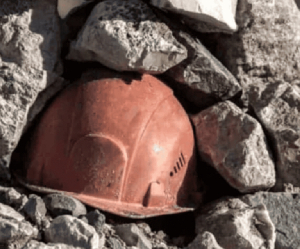Mr Nopiaki Sadamoto, Press Secretary, Japanese Embassy in Accra, on Thursday inaugurated a classroom block for the St Mathews basic school at the Ivorian Refugee Camp at Fetentaa in the Berekum Municipality of Brong-Ahafo Region.
The six unit classroom block, constructed by Anstak Constructions, a Sunyani-based building construction firm, was funded by the Japanese government at the cost of GH¢ 220,000.00.
It will not only facilitate effective teaching and learning among the 270 pupils in the school, but also improve on their enrolment, as children population increases at the camp.
According to Mr Sadamoto, the project was funded as part of the Japanese government assistance of $300,000, which is the second since 2013. It had already funded $1,600,000 to the Ivorian refugees around the country.
He said more than 10,000 Ivorian refugees in the Fetentaa, Ampain and Egyeikrom camps, as well as vulnerable refugees in the urban areas had benefited from such assistance.
Mr Sadamoto emphasized that promoting human development through education and skills development was imperative to achieving total societal development.
He said in addition to the school block, which has store room and office, the project would also provide teaching and learning materials and the holding of extra classes in English to enhance communication in the language for the pupils.
Mr Sadamoto reiterated that the Japanese government cherished its long standing relationship with the people of Ghana, and he was optimistic that such affiliation would be strengthened for the benefit of both countries.
Madam Mavis Abo, the Head of Field Office, at the Sunyani Office of the United Nations High Commission on Refugees (UNHCR), said the Commission appreciated the continuous support of the Japanese government to improving the lives of refugees in the country.
She noted that support from the Japan government in the areas of health and education could not be over-emphasised.
Madam Abo entreated corporate bodies, non-governmental organisations, philanthropists and religious organisations to support the upkeep of the refugees in the country.
Mr Edem Akpali, the Brong-Ahafo Regional Coordinator of the Ghana Refugee Board, noted that the camp currently had 1,950 refugees.
He appreciated the hospitality of the chiefs and people of Fetentaa, and advised the refugees to respect the culture of the people.
Mr Opoku Boakye Yiadom, the Berekum Municipal Chief Executive, noted that more ought to be done to enhance the living conditions of the refugees, and appealed to the Japanese government to continue to support.
He appealed to the Ghana Refugee Board to facilitate payment of compensation to the local people, whose lands were directly or indirectly affected in the establishment of the camp in the area.
Regional News of Saturday, 10 October 2015
Source: GNA












